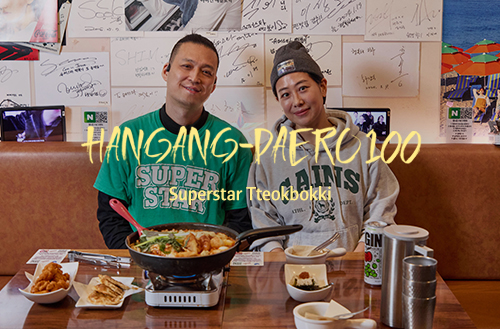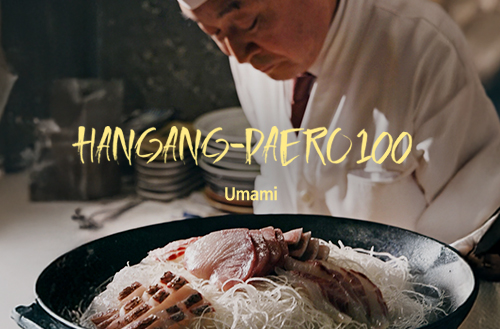

-
-
- 메일 공유
-
https://stories.amorepacific.com/en/meeting-yoon-geun-bae-the-owner-of-africa-eyewear-sinyongsan-branch
Meeting Yoon Geun-bae, the Owner of AFRICA EYEWEAR Sinyongsan Branch
Enabling Everyone to See the World Clearly and Beautifully

At AFRICA EYEWEAR's Sinyongsan branch, we met with Yoon Geun-bae, who has been safeguarding the vision of Amorepacific's employees for seven years now, coinciding with the construction of Amorepacific's new headquarters.
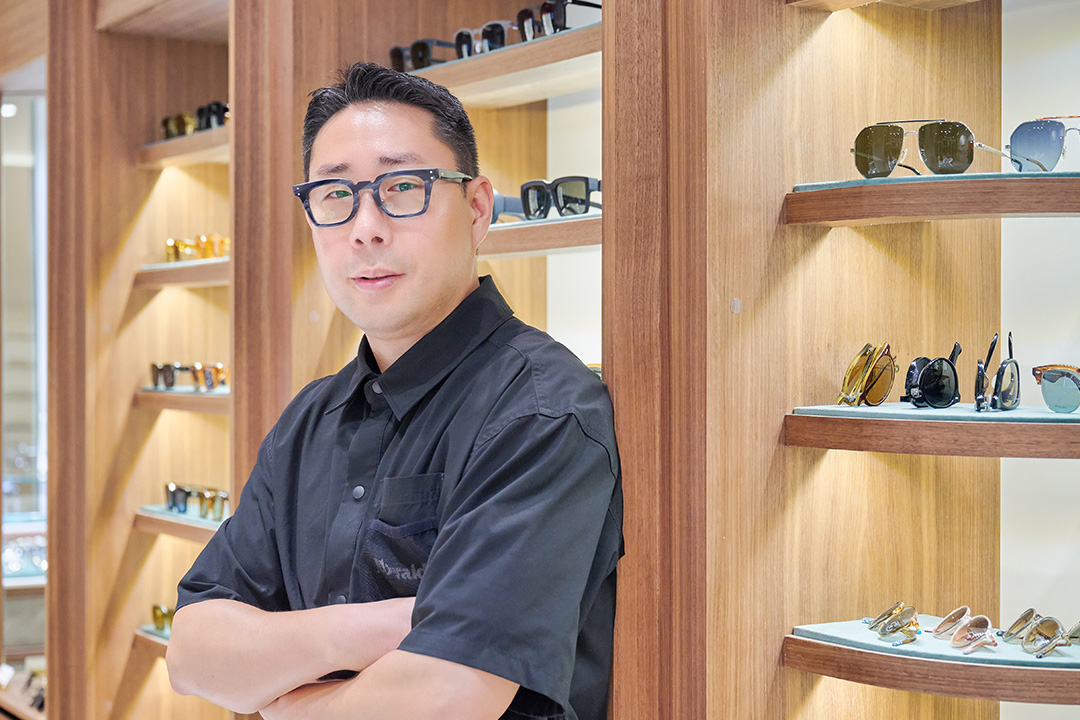
At the AFRICA EYEWEAR Sinyongsan Branch with Yoon Geun-bae
From Computer Science Student to Discerning Optician
I'm curious about your journey to becoming an optician.
Initially, I majored in computer science in college. After about a year, I realized it wasn't the right fit for me. I regretted the choice I had made. I quickly started to look for a different path. After experiencing the failure, I thought hard about my next steps. That's when I discovered the profession of ‘optician.’ It was touted as a promising field in the media then. The most appealing aspect was the ability to work independently, not tied to any organization. There's no mandatory retirement age as an optician, provided you have the necessary certification. So, I enrolled in a college that offered a program in optical science. I didn't start this career firmly believing it was the perfect fit for me or with grand dreams of being an optician. It was more like, ‘This seems like a good fit; let's give it a try.’ Fortunately, it turned out to be the right profession for me.
After graduating with a degree in optical science, you're eligible to take the national exam. Once you pass, you're officially an ‘optician.’ I landed my first job at an eyewear shop near my home. I started with menial tasks like cleaning, as what you learn in university is primarily theoretical and complex to apply in practice. Getting involved in practical tasks like eye examinations and customer service takes quite some time. After years of hands-on experience and gaining confidence in operations, I could open my shop.
Could you briefly describe the work of an optician?
Simply put, an optician's job is to ‘alleviate vision-related discomfort.’ The work can be divided into three main parts: conducting eye examinations, crafting lenses to fit into frames, and fitting glasses to a customer's face. An optician's role is to ease the discomfort of daily life due to vision issues and to provide satisfactory styling.
How can you tell if an optician is skilled?
An optician's skill lies in balancing all aspects of the job, including eye examinations, lens crafting, fitting, and sales. Typically, opticians specialize in one area. Communicating effectively with customers is also a vital skill. It's crucial to identify a customer's discomfort and needs accurately. Often, customers express their issues in vague terms like ‘I can't see things far away’ or ‘My eyes are tired.’ The actual prescription needed can be quite different. The ability to unearth detailed discomforts through conversation, rather than relying solely on mechanical measurements, is also a mark of skill.
What do you do to improve your skills as optician?
The job involves dealing with the delicate organ. Thus, constantly updating with the latest information is essential. The world's eyewear fairs are the best places to access the latest trends in eyewear technology. SILMO in Paris and MIDO in Milan are notable examples. I visit these fairs annually to experience optical products incorporating new technologies firsthand and gather information.
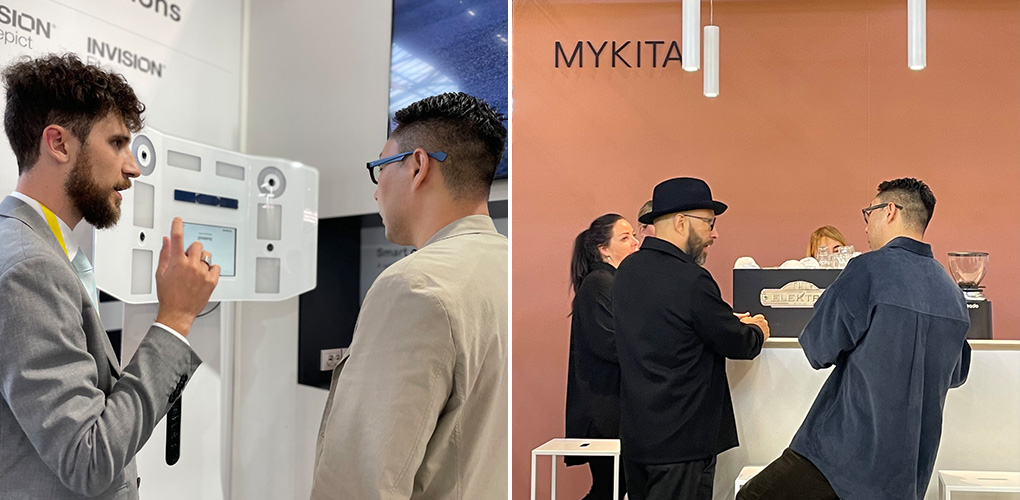
Yoon Geun-bae at the Eyewear Fairs
Furthermore, it's crucial for an optician to cultivate a discerning eye. Only then can you select the finest products from the many glasses available and suggest styles that suit your customers. To develop this aesthetic sense, I don't limit myself to eyewear; I frequently visit exhibitions and galleries to immerse myself in fine art. Our AFRICA EYEWEAR store also displays various artworks.
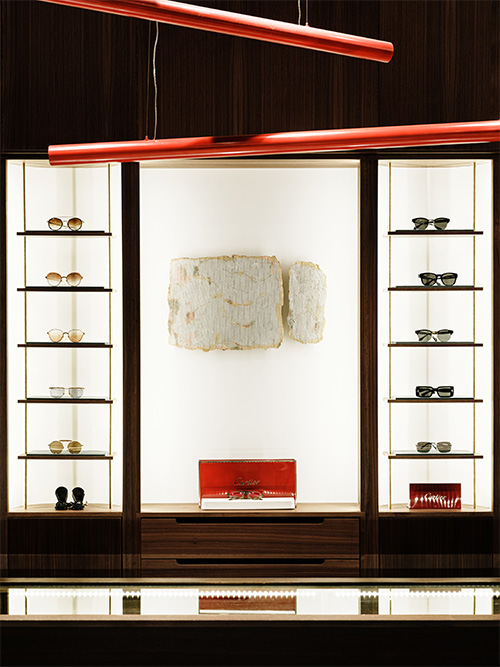
Artworks Exhibited at AFRICA EYEWEAR Store
A Strong Passion Is the Most Powerful Driving Force
When did you start your business?
I opened the eyewear store in Seoul Square in 2015 when I was 36 years old. I chose Seoul Square for its resident office population and the foot traffic from Seoul Station. Running an eyewear store means purchasing glasses outright, and the initial startup costs are higher than one might think, considering the deposit, interior design costs, eye examination machines, and other equipment. Fortunately, opticians can get loans with their licenses, so I took out a loan for the first time to start the business. I used to think taking a loan was a big deal, but luckily, the steady sales helped me get to where I am now.
Did you face any difficulties after starting the business?
Of course, there were more things to worry about and challenges, but I found it much more enjoyable than working as an employee. I experienced firsthand how the way I work can change the outcome. If the result was good, it spurred me to try new things. Seeing the results of my efforts was incredibly rewarding.
Regular customers are important for an eyewear store.
Is there a way to turn first-time customers into regulars?
Kindness is fundamental, and regulars naturally follow when you add genuine care for the customers. The essence is introducing suitable products and provide fitting styling. For that, the store needs to have new and stylish glasses constantly. Water stagnates if it's not flowing. If customers see the same products every time they visit, they'll feel like they're encountering stagnant water. That's why I invest generously in product buying. Marketing solely for sales growth is short-lived. Keeping the customer's best interests at heart, new customers become regulars, and regulars bring in new customers, creating a virtuous cycle. Even if it's slow, being naturally and solidly promoted through customer recommendations is the best marketing.
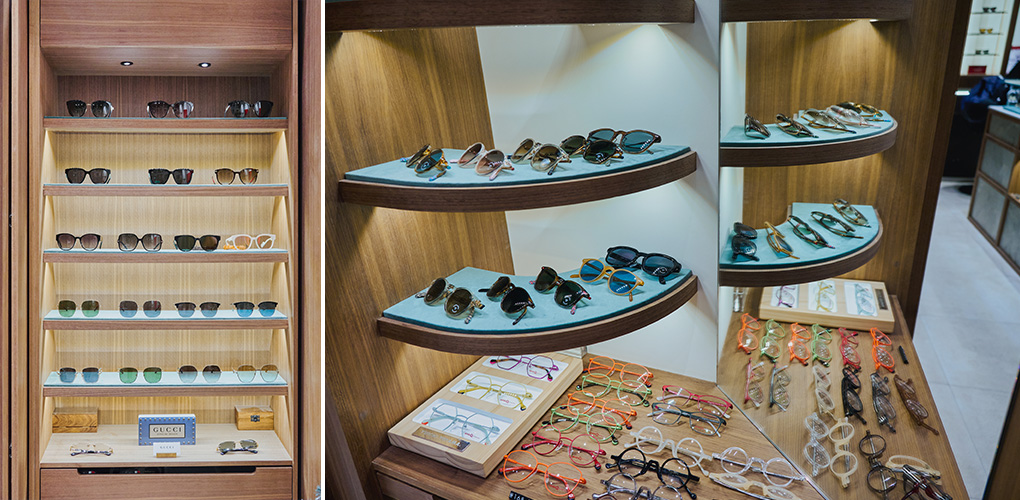
The Diverse Selection Available in the Store
Do you ever feel hurt when dealing with customers?
Being human, I get upset sometimes, but it's important to manage emotions as a professional. Luckily, I don't get stressed easily, so even if there are upsetting moments, I tend to forget them quickly. It might be because of my poor memory (laughs). My easygoing nature is a plus in my work. Also, the manners of the customers here prevent significant difficulties.
What are your core beliefs, especially during tough times in business?
Rather than simply chasing profits, I believe in creating a point of differentiation. Part of that effort is the ‘sophisticated details.’ From the design of shopping bags to the material of the glasses cloth and even the coffee beans served to customers, I've strived to elevate the quality in even the most minor and trivial things. For instance, I use custom-designed shopping bags instead of the company's standard ones. I personally commission the designs and oversee the production.
For the first six months after opening, we even had a barista on-site to serve coffee to customers. The coffee beans we currently use are top-grade beans sourced from Busan. Although costly, these elements reflect my philosophy of treating even the most minor things with the utmost care. Customers really appreciate it.
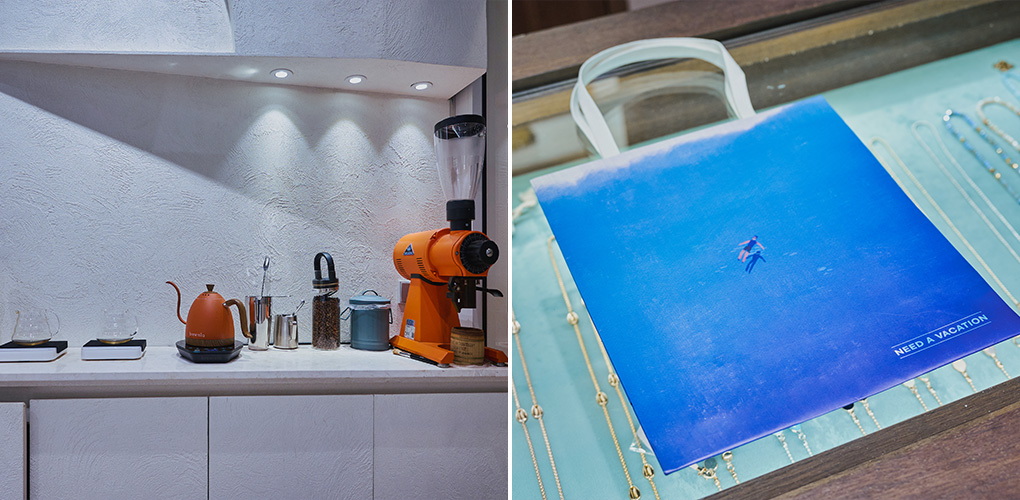
Hand-drip Equipment Displayed in the Store, and a Custom-made Shopping Bag
What motivates you to continue working consistently?
The primary driving force is my love for this job. It may seem like working in a confined space, but I can do many things. Applying everyday ideas to my work and creating my unique niche is incredibly fulfilling. I also enjoy consistently discovering lesser-known brands and accessories to introduce to my customers. The satisfaction I feel when a customer is happy acts as a motivator.
How do you incorporate every day ideas into your work?
People often store sunglasses in their cars, but cars can heat up suddenly, damaging the lenses. Despite knowing it could be better not to leave them in the car, people do it for convenience. So, I sought a material that could protect glasses under these conditions. I discovered Tyvek, a lightweight and durable material, and made eyeglass cases from it. These cases are less affected by temperature changes, allowing for the safe storage of sunglasses in cars.
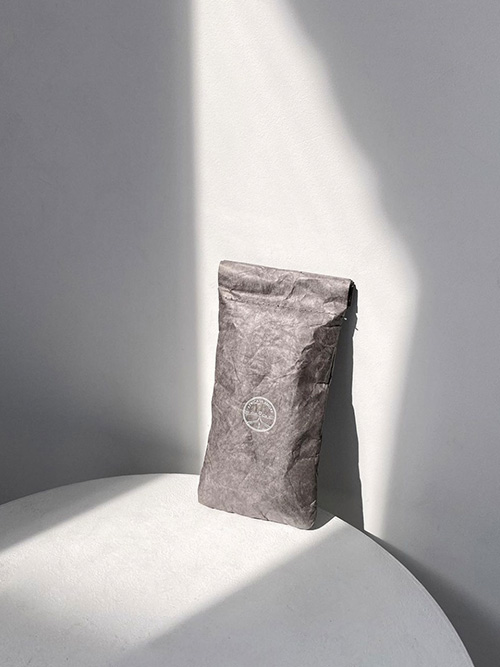
Custom-made Tyvek eyeglass cases
Amorepacific x AFRICA EYEWEAR
I'm curious about your entry into the Amorepacific building.
When I set up in Seoul Square, my target was the transient population around Seoul Station. However, attracting these passersby inside the building proved challenging. I realized a location combining office and residential areas would offer more significant growth potential. Then, I received an offer to set up in Amorepacific's new headquarters. At the time, the Yongsan commercial area wasn't as vibrant as it is now, but Amorepacific's influence would be significant. Moreover, it was an opportunity to tap into both the office and residential markets. Operating at the Amorepacific branch allowed me to meet a much broader customer base, so I quickly signed after the renewal.
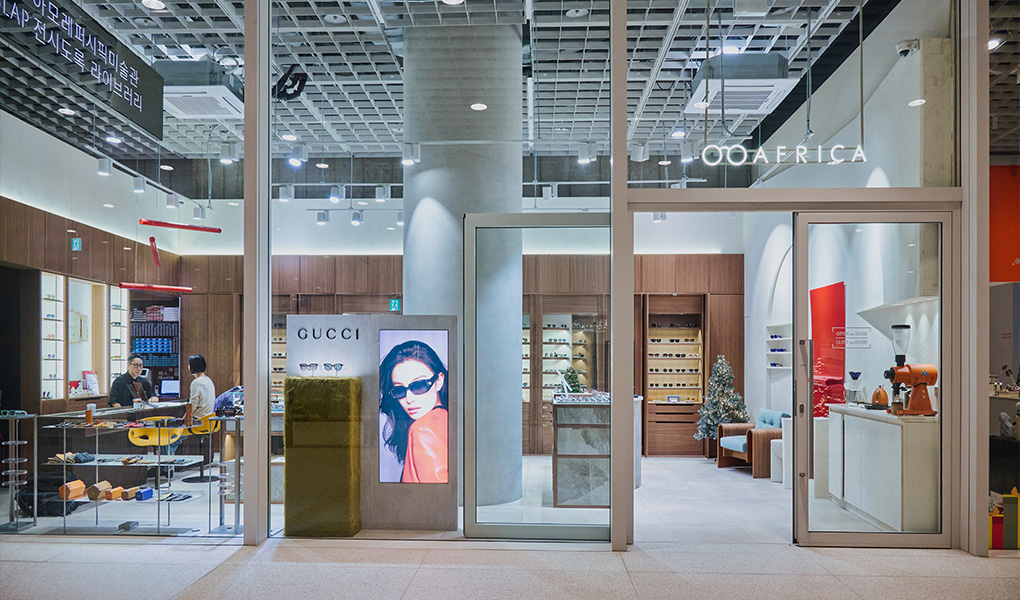
AFRICA EYEWEAR Sinyongsan branch
Are Amorepacific employees different from other customers?
Many seek glasses as a fashion accessory despite not needing them for vision correction. Their generally cheerful nature makes my job more enjoyable. They have a keen interest not only in glasses but also in various accessories, exhibiting high taste.
I understand our executives also frequent your store. What type of glasses do they prefer?
The executives tend to prefer lightweight styles yet convey an intellectual mood. I recommend glasses that suit their face shape, lens prescription, and clothing style. I often suggest smaller frames. While more oversized glasses create a fashionable look, smaller ones exude sophistication. Small glasses are timeless and, despite appearing to offer a narrower field of vision, are optically superior.
If you had to pick the top 3 bestsellers at the AFRICA EYEWEAR Sinyongsan branch?
The third place would be thin horn-rimmed glasses in light brown or gray. The second most popular is metal glasses in a crown panto shape (rounded with a squared top). The most beloved are transparent horn-rimmed glasses. While ‘crown panto’ glasses were in vogue for a while, the trend is shifting towards square horn-rimmed frames. Square, transparent horn-rimmed glasses will be the trend for some time.

From left to right, the top 1, 2, 3 bestsellers
What kind of glasses do you wear?
Lately, I've favored brands like ‘Jacques Marie Mage’ and ‘Jean Philippe Joly.’ Since glasses can create different images, I try to wear as many styles as possible. Experimenting with new styles through glasses is a joy for me. I hope everyone who wears glasses can experience this pleasure.
Do you have any tips for choosing glasses?
Most people think large frames make the face look smaller, but that's not necessarily true. Glasses that fit your face size perfectly or are slightly smaller can create a much more sophisticated look. It's better to avoid large glasses, especially for those with high-prescription lenses. More oversized glasses make the lenses thicker, making the eyes appear smaller.
I tend to avoid saying ‘a particular face should wear a specific shape of glasses.’ There are numerous variations within round shapes and square shapes, making it difficult to define categorically. Such rigid frameworks can limit choices. I recommend coming in for a consultation to find the glasses that suit you best.
Do you have any tips for caring for glasses and sunglasses?
Since eyeglass lenses are plastic, they can stretch and shrink under high temperatures, damaging the surface coating. This can deteriorate the lenses and reduce UV protection. Avoid leaving them on a hot water mat or wearing them in baths or saunas. It's best to prevent exposure to high temperatures.
As for vision care, wearing glasses is advisable if your vision is 0.7 or lower. Many don't wear glasses at 0.7 because it's enough for daily activities. However, wearing glasses frequently, if not always, is essential to maintain your eyesight.
How do you want to develop your business in the future?
Every time I attend an eyewear expo, I realize many great yet undiscovered brands exist. My primary goal is to introduce these hidden gems to the domestic market. In the long term, I aim to create and distribute my brand internationally.
Lastly, what does work mean to you?
For me, work is ‘what I love most and what I can do best.’ I especially enjoy accumulating expertise in a field and gaining a deeper understanding of my work. Building relationships with regular customers over a long time brings happiness, too. Happiness is ‘being satisfied with oneself,’ and work serves as a medium. I'll still love this job even as I age.
epilogue
Seeing Yoon Geun-bae, who works passionately for what he loves and finds happiness in his work, reaffirms the power of ‘loving what you do.’ I look forward to seeing him still passionate about his work 20 years from now.
Interview Shin Hye-won
Photos Design Mong
Planning Amorepacific Communications Team
-
Like
2 -
Recommend
0 -
Thumbs up
0 -
Supporting
0 -
Want follow-up article
0



